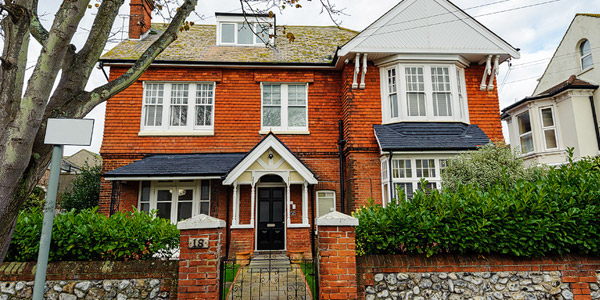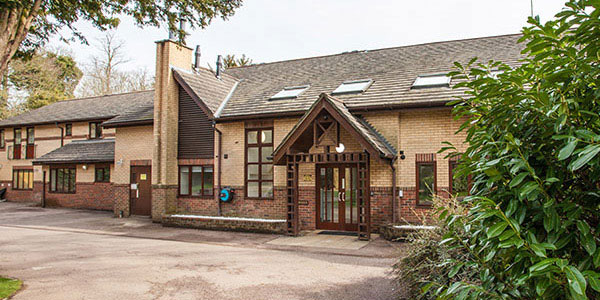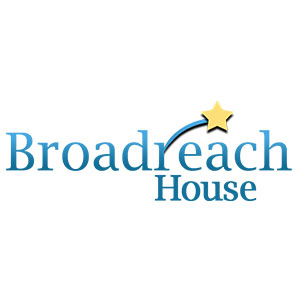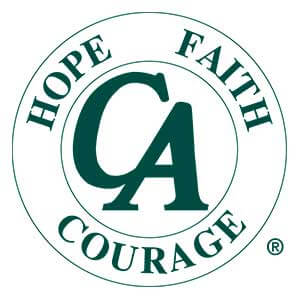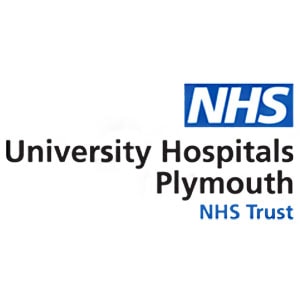Alcohol & Drug Rehab in Plymouth
Few people who know and love Bristol will need reminding that along with all the positive aspects that make it such an enjoyable place to live, the city has a darker side in the form of a long-standing and serious addiction problem. Alcohol, illegal drugs – especially hard drugs such as crack and heroin – and prescription medicine are all taking a terrible toll on Plymouth’s inhabitants, with knock-on consequences for crime and social health.
However, the picture is not an unremittingly gloomy one: there are now many facilities available for those struggling with addiction who are prepared to reach out for help. If you are among them, do not give up hope: read on to learn how rehab can set you back on the path to happiness.
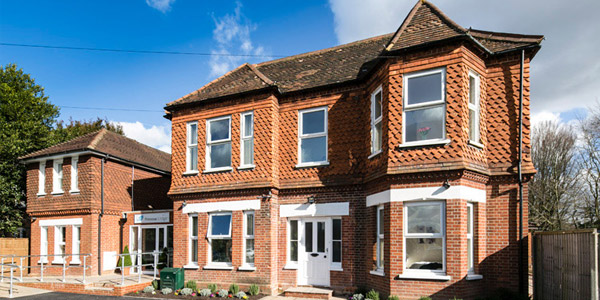
At Primrose Lodge we genuinely care that our patients make a full recovery …
- Private
- Holistic Treatment
- Onsite gym
- Residential
Featured Rehabs
The Recovery lighthouse is a 13 bedroom alcohol and drug rehab facility set…
Banbury Lodge is a private UKAT rehab facility based in Banbury, Oxfordshir…
Liberty House Clinic is a fully furbished detox and rehabilitation facility…
Finding Treatment near Plymouth
-
Head Office/Admissions Team
465 Tavistock Road
Plymouth
Devon
PL6 7HE
01752 7971020 review- Dual Diagnosis
- Trauma Therapy
- Holisitic Therapies
- Drugs & Alcohol
- Load More
-
- 12 Step
- Group Setting
- Free
- Outpatient
-
- 12 Step
- Group Setting
- Free
- Outpatient
-
- 12 Step
- Group Setting
- Free
- Outpatient
-
Harbour Drug & Alcohol Services
Hyde Park House
Mutley
Plymouth
Devon PL4 6LF0 review- 12 Step
- Group Setting
- Free
- Outpatient
- Load More
What Is Rehab?

Residential rehabilitation – “rehab” – describes addiction treatment provided at a dedicated facility, as well as being the name given to that facility itself (“going to rehab”). Treatment rehab typically comprises a detoxification (“detox”) phase aimed at removing a patient’s physical dependency, followed by a therapy phase to deal with psychological addiction and to prepare the patient for their return to the outside world. Rehabs are typically aesthetically pleasing, tranquil and secluded institutions, and are of necessity confidential ones, to allow patients to focus on their recovery without worrying that details of their condition will become common knowledge in the outside world.
Because rehab is able to target both the immediacies of physical dependency and the long-term challenges of psychological addiction, it provides a very robust platform upon which patients can build permanent recoveries. As a result it is generally accepted that rehab is the most effective addiction treatment method – indeed, so closely are rehab and recovery linked in the public mind that “rehab” has effectively become synonymous with “addiction treatment” in the modern world.
How Can I Get Someone into Rehab?
It is well known that an addict is only really ready for treatment once they are able to voice a desire for help. However, the longer someone remains addicted, the higher the likelihood that their illness will have permanently catastrophic – even fatal – consequences for themselves or others. As a result it is imperative to get them help as quickly as possible.
Although the NHS can and does provide excellent addiction treatment services, demand is very high – especially in a densely populated area such as Plymouth – and the waiting times for some of those services can be distressingly long. Therefore, if you or someone you know are ready to reach out to help, don’t waste any more time. Call 0800 024 1455 to speak with a professional today about some of the private options that may be open to you.
Advantages of Private Rehab
While specific details and options will of course vary from one rehab to the next, generally speaking the process of treatment is similar across facilities. Upon entering rehab, an addict will be assessed by a medical team looking to establish their physical and mental condition and the true extent of their addiction.
Following this assessment the addict will embark upon the process of detoxification (“detox”) monitored and assisted by highly trained and experienced medical professionals providing round-the-clock care in order to make the process of detox, and the experience of withdrawal, as safe and as comfortable as possible (perhaps via the administration of certain medications).
Once detox is complete, the patient is able to move through the therapy phase aimed at uncovering the original causes of their addiction and subsequently providing them with psychological defences against relapse. Throughout their stay the patient will be given bespoke dietary and fitness plans – on the basis of “healthy body, healthy mind” – and will also benefit from rehab’s peaceful, secure, pleasant and confidential setting in which they can focus entirely upon the recovery process and their journey of self-awareness.
At the end of a stay in rehab, patients will leave the facility – but it would be a mistake to think that this implies that recovery is complete. Recovery is a lengthy – often lifelong – process with a host of intense challenges around every corner, requiring constant commitment and dedication if the recovering addict is to remain free from substance abuse. With this in mind, good rehabs will offer up to a year’s free aftercare to provide former patients with the support they may need during times of crisis outside the facility.
What Does Rehab Cost in Plymouth?
The cost of private rehab in or near Plymouth can vary significantly by treatment programme, and depending on which of a variety of optional extras are selected. As a rough guide, standard costs range from between £5,500 and £11,000 per month, though the cheapest rehab treatment can start from as little as £834 per week. For more details, call 0800 804 4755.
NHS Addiction Treatment Options near Plymouth
If you believe that private rehab is not an option for you – maybe for reasons of cost, or if you do not feel able to spend that much time away from your family and/or your work obligations, do not despair: various NHS and charity resources for the treatment of addiction are available in Plymouth and across Devon. Talk to your GP about which of these resources may be most appropriate for your specific situation.
Advantages of NHS Treatment
The most obvious advantage of going by the NHS for addiction treatment is that it will be free at the point of use; as noted above, the potential cost of private rehab discourages some addicts from seeking treatment in that way (though it should be noted that compared with the costs of continuing with an addiction, this may be viewed as a minimal investment).
Another advantage the NHS offers is its geographic reach which makes facilities comparatively very accessible (though waiting times, again, can be distressingly excessive). Quality is also a factor though this varies from trust to trust.
Addiction Support Groups
A number of organisations exist across the country to provide assistance to recovering addicts, and some of these operate a support group model. Support groups are groups of individuals who are themselves recovering addicts – some only recently free from addiction, while others may have been clean for many years – and who come together at regular meetings to give and take mutual support: sharing their stories of addiction, giving advice on how to resist relapse, showing solidarity and sympathy when group members are struggling, and providing the simple companionship which can mean so much in times of difficulty and loneliness.
Support group attendees can come from all walks of life, brought together by their shared experience of addiction and recovery; typically, attendance at support groups is free and the only qualification for participation is a commitment to leading a life free of substance abuse.
The most famous support group organisation, and the one on which most others are modelled, is Alcoholics Anonymous (AA) which was founded in 1935 and runs on a 12-step programme of personal and spiritual development, with one of the steps being a recognition that a higher power – such as God – can assist with an alcoholic’s recovery. Narcotics Anonymous (NA), founded in 1953 and based directly upon the AA model, is the second-largest support group organisation worldwide and caters to recovering drug addicts specifically.
In a similar vein, but supporting those recovering from addictions to specific substances, are Cocaine Anonymous (CA), Heroin Anonymous (HA), Marijuana Anonymous (MA) and Crystal Meth Anonymous (CMA), all of which operate 12-step programmes. There are also support groups such as Al-Anon and Nar-Anon assisting the families and friends of addicts which typically hold meetings alongside those for the addicts themselves.
Support groups typically meet weekly, though each local chapter is managed independently and meeting times and venues are subject to change. To find information on meetings in or near Plymouth, see the relevant websites: Alcoholics Anonymous; Narcotics Anonymous; Cocaine Anonymous; Heroin Anonymous; Marijuana Anonymous; Crystal Meth Anonymous.
Types of Counselling

Many recovering addicts benefit from individual counselling – especially useful for people with very busy schedules – provided by private addiction counsellors who operate very much like “normal” psychotherapists (though with an understandable focus on addiction and its ramifications).
This model is often of particular interest to people who have completed a rehab programme and who desire a supplementary aid to their recovery, as well as to those who have not yet engaged in such a programme but who seek a means of managing an addiction prior to doing so at an appropriate time.
Private counsellors can be found across the country and abroad variety of therapeutic models are delivered. Counsellors are typically seen on an ongoing basis by private appointment – usually weekly – and charge a fee per such appointment. The majority of counsellors limit access to set working hours, though some do make themselves available for emergency access.
How to get to Primrose Lodge from Plymouth
Primrose Lodge is a unique rehab clinic located in the historic town of Guildford, Surrey. Boasting a private gymnasium, purpose-built treatment rooms and en suite bedrooms, this attractive, spacious building is the perfect getaway for those battling addiction, while Primrose Lodge’s highly experienced staff are on hand 24/7 to ensure patients’ safety and comfort.
Integrated treatment programmes designed to address the root causes of addiction are provided in a tranquil and confidential environment in which patients can focus wholly upon their recovery.
To get to Worplesdon from Plymouth, take the Devon Expressway/A38 all the way to the M5 and join at the beginning of the motorway. At junction 29, rejoin the A30 and continue to the A303. Stay on the A303 until the M3; merge onto the motorway and then at junction 4 take the A331 exit. Stay on that road to the B3411; continue onto B3405 and then join the A324. Join the B3032, take the B380 and finally the A322; follow signs to Worplesdon.


